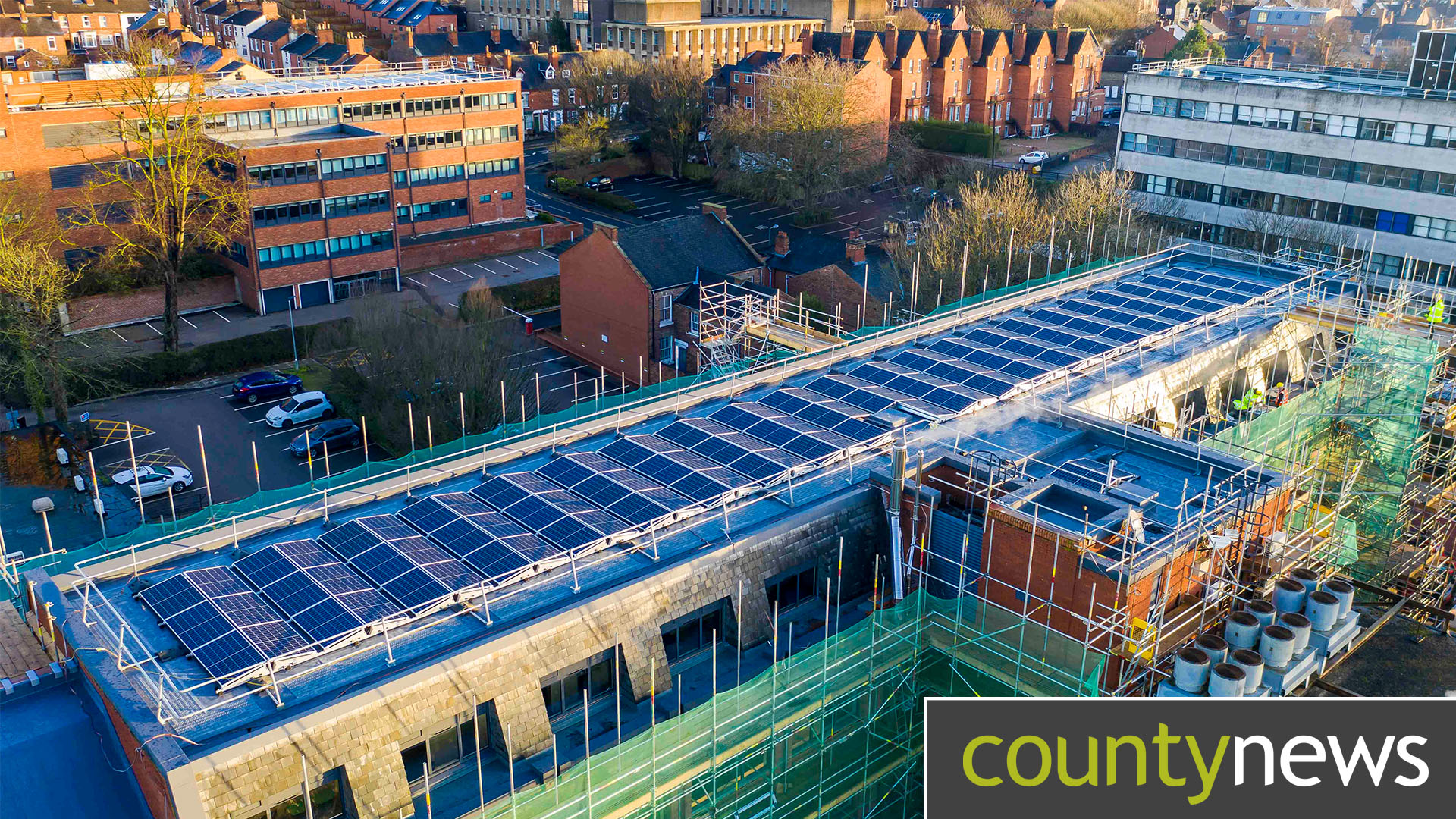
The council has pledged to become net zero carbon by 2050, or sooner if possible, and we want to help the whole of Lincolnshire to achieve the same thing!
Here, we look at some of the initiatives being put in place.
Eco-friendly buildings
We’re installing renewable technology in or on many of our own buildings and those we have helped develop, including schools, extra care housing, fire stations, waste transfer stations and council buildings. Work has been carried out at the joint fire, ambulance and police station at South Park in Lincoln and at other fire stations, The Collection museum, Lancaster House and De Wint extra care housing in Lincoln.
Measures have included new low-energy lighting, better boilers, insulation and ventilation, solar PV panels, efficient heating, rainwater harvesting, wind turbines, air source heat pumps and electric vehicle charging points.
Energy-efficient transport
In 2019, we started the roll out of our new fire appliances across the county. The fleet is fully HGV Euro 6 compliant and will reduce carbon emissions by approximately 40%, with a reduction of 25% in nitrogen dioxide over the lifespan too, compared to previous vehicles.
At our waste transfer stations, we are updating and modernising our JCBs with better, greener and cleaner engines, drastically reducing emissions.
Sustainable travel
We’re also helping reduce residents’ impact on the environment by providing more options for sustainable travel – including our Access Lincoln programme and hire bike scheme in Lincoln.
Thanks to £800,000 from the government to make walking and cycling improvements in the county, we have helped people choose to leave the car at home, thereby reducing congestion and emissions.
Not only this, at our schools, we have been delivering Bikeability training to thousands of children, helping them stay safe on the school run. In addition, the council has improved some of the walking and cycling routes to schools, and has set aside a further £450,000 this current financial year for further works.
Recycling schemes
We’re working hard to bring new recycling schemes to our communities. The new separate paper and card collection which is about to be rolled out across the county means we can take paper and card directly to a designated paper mill, rather than it being sent overseas.
This saves time, road miles and reduces our carbon footprint. The extra benefit is that the paper you’ve collected can be recycled again and again.
And, for the past few years, together with our colleagues at South Kesteven District Council, we’ve been running a food waste trial collecting food waste separately in caddies.
The food is sent to an anaerobic digester where it is broken down into two things: energy and bio-gas which is cleaned and fed into the national grid, and the by-product, fertiliser, is used locally by farmers on their fields.
Last year around 300 tonnes of food waste was processed which can produce enough electricity to power 16,000 homes for a day or to recharge more than three million mobile phones.
Energy efficient streetlights
Since 2016, we’ve been upgrading streetlights across the county to energy efficient white-light LEDs. These are brighter than the old-style halogen lamps, but use 75% less energy and require less maintenance.
So far we’ve upgraded around half of the county’s 68,000 streetlights which has helped us save more than £2.5m on our annual electricity bills, and cut 6,200 metric tonnes of carbon dioxide.
Protecting our environment
We’re committed to protecting and nurturing our environment by planting trees where we can. We’ve supported volunteers to transform six hectares of waste land to the north of Lincoln into a new woodland area, with 700 new trees planted. We are also planting trees at a former landfill site near Langworth.
Through our major projects, including the Lincoln Eastern Bypass, we’re planting 305 new trees, over 10,000 smaller shrubs and plants, 38,000 hedges, and will create a new wildflower area the size of three football pitches.
We’re working hard to protect our environment – so investing in flood alleviation schemes in the county, including Digby, Middle Rasen and Stamp End, Louth and Horncastle.
Green Masterplan
The council is now working with many different partners to put a long-term plan in place to reduce carbon emissions further in Lincolnshire, so watch this space! In March the council also committed to a 68% reduction in carbon emissions from the 1990 baseline data by 2025 – five years earlier than the same target the government has set.
To find out more, visit www.lincolnshire.gov.uk/greenmasterplan
